Jacksonville Contract Attorneys
Business Law Assistance in Florida
We all come in contact with contracts on daily basis, whether it is a commercial lease, a purchase of a home or a vehicle, or perhaps you are clicking online that you “have read and agree to terms and conditions” of a particular agreement. All these are examples of contacts with different purposes. Basically a contract is an agreement between two or more parties for a specific act or thing and it carries legal consequences if not performed. The parties can be individuals or entities (corporation, partnership, LLC or others).
For help, trust our Jacksonville business lawyers at The Law Offices of Kate Mesic. We can be reached at (904) 615-8950.
Basic Elements of Contracts
There are three basic elements of a contract: 1. Offer (A says to B “I will lease you an office in my building for $1000), 2. Acceptance (B says “Great, that sounds like a deal”); 3. Consideration (A gives B $1000 and signs a lease). So, in order to have a valid contract, there must be what is called a “meeting of the minds” of both parties. The above three elements are essential to each and every contract. The example above is a basic one, and as all of us know, during negotiations it does not happen that easy, when counteroffers and rejections come into play, and the terms of the final contract would be different from what you started.
It is also important to note that even when you have a meeting of the minds (or offer and acceptance), this may not necessarily be an enforceable or be a valid contract. For example, the two parties cannot contract for something that is illegal or impossible to perform. Another example of an unenforceable contract could be when one of the parties does not have the capacity to enter into the contract, such as a minor, incapacitated person due to age or mental illness, or perhaps a person who could easily be influenced (under duress).
What Is a Florida Statute of Frauds & When Does it Apply?
Under Florida law (Florida Statute 725.01), the statute of frauds requires certain kinds of contracts to be in writing.
To be enforceable in Florida, contracts listed below that must be in writing, signed by the party against whom the contract will be enforced (please note these just examples and are not the complete list):
- A promise by a person to pay someone else’s debt.
- Agreements made on consideration of marriage.
- Contracts for the sale of real property.
- Leases of real estate for a term longer than one year.
- Agreements that are not to be performed within one year from the date of making the agreement.
- Contracts for the sale of goods that are valued more than $500.
Verbal Contract v. Written Contract
A contract can be either written or oral (verbal). As noted above, certain contracts are required by Florida law to be in writing. Most of the time, it is better to have a written contract, simply because the document can eliminate any disagreement about what was the agreement between the parties. However, just because the contract is written, it does not mean it is automatically enforceable; rather it must outline the agreement between the parties with enough specificity. A business attorney in Jacksonville can help you determine what needs to be in your contract and how to structure it to make sure it is legally binding and is enforceable under Florida law.
Contracts also address issues such as jurisdiction, venue (where the lawsuit can be brought), will a jury trial be necessary or will the judge decide the case, the payment of attorney’s fees and costs, and is mediation or arbitration required. A Jacksonville business law attorney will help you understand these terms and many others.
Breach of Contract
When one party breaks the contract it is called a “breach” of contract, and a lot of times will lead to a lawsuit.
Statute of limitations comes into play when deciding when to sue. If you do not sue within the prescribed period of time, you will give up that right and cannot sue later. A business attorney in Jacksonville will assist you in figuring out the deadlines for filing a lawsuit based on your contract, whether verbal or written.
- In Florida, a lawsuit based on a written contract must be brought within five years. (Florida Statute 95.11(2)(b)).
- A lawsuit based on an unwritten or verbal contract is four years. (Florida Statute 95.11(3)(k)).
Generally the statute of limitations period begins to run at the time of the breach.
Contract Terminations
While the obvious answers to contract terminations are that either you wait our the term of the contract, or you pay a penalty fee. However, at times there are other legal options that you may explore that may get you the outcome you want. It is always important to remember that contracts go both ways, you are entering into an agreement with another party and the other party is entering an agreement with you. If you are looking to get out of a contract there may be loopholes that may be exploited such as the opposing party unknowingly violating a certain portion of the contract.
Contracts are complex and can have severe consequences for both parties, so it is important to have all your contracts, credit applications, and leases reviewed by your Jacksonville business lawyer, so you can understand exactly what you are getting into. Attorney Kate Mesic can help you understand the contract you have to sign and help you avoid costly mistakes by reviewing your existing customer contracts.
Contact our firm online to schedule a consultation today.


Our Settlements & Verdicts
Our top priority is to devise customized legal strategies that are tailored to the unique legal needs of our clients, no matter how simple or complicated their situations, might be.
-
Charges dropped Accident-Failed to Give Information and Improper Backing
-
Dismissed Accident-Leaving the Scene, Careless Driving
-
Expunged Allow Minor Alcohol at Open House Party.
-
Charges Dropped Allow Minor Alcohol ot Drugs at Open House Party
-
1 count of battery amended, others dropped Battery
-
Withhold of Adjudication Battery


